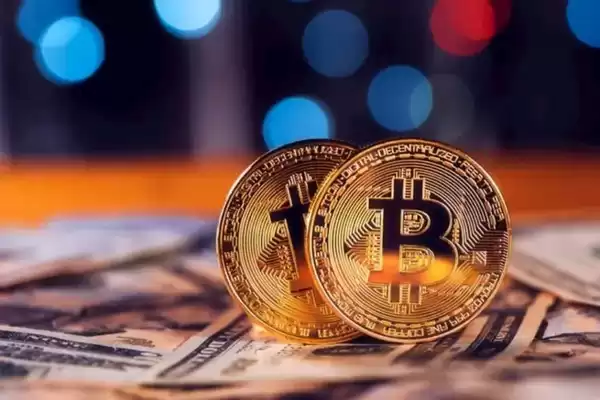-
 bitcoin
bitcoin $87959.907984 USD
1.34% -
 ethereum
ethereum $2920.497338 USD
3.04% -
 tether
tether $0.999775 USD
0.00% -
 xrp
xrp $2.237324 USD
8.12% -
 bnb
bnb $860.243768 USD
0.90% -
 solana
solana $138.089498 USD
5.43% -
 usd-coin
usd-coin $0.999807 USD
0.01% -
 tron
tron $0.272801 USD
-1.53% -
 dogecoin
dogecoin $0.150904 USD
2.96% -
 cardano
cardano $0.421635 USD
1.97% -
 hyperliquid
hyperliquid $32.152445 USD
2.23% -
 bitcoin-cash
bitcoin-cash $533.301069 USD
-1.94% -
 chainlink
chainlink $12.953417 USD
2.68% -
 unus-sed-leo
unus-sed-leo $9.535951 USD
0.73% -
 zcash
zcash $521.483386 USD
-2.87%
What does Bitcoin liquidation mean?
Liquidation occurs when a trader's margin balance falls below the maintenance margin threshold due to adverse market movements, insufficient collateral, or excessive leverage.
Sep 27, 2024 at 05:06 pm

1. DefinitionBitcoin liquidation occurs when a trader's margin position is forcibly closed due to insufficient funds to cover losses. Margin trading involves borrowing funds from a broker to increase potential profits, but it also magnifies potential losses.
2. Causes of LiquidationLiquidation happens when the trader's margin balance falls below a certain threshold known as the maintenance margin. This can occur due to:
- Adverse Market Movements: Significant price drops can lead to large losses on margin positions.
- Insufficient Collateral: Traders who deposit a small amount of funds as collateral relative to the borrowed funds are at higher risk of liquidation if their position moves against them.
- Leverage: High leverage amplifies losses, making liquidation more likely.
3. Consequences of LiquidationLiquidation triggers the following events:
- Position Closure: The trader's margin position is automatically closed.
- Loss Realization: The trader incurs losses up to the borrowed funds' value.
- Margin Call: The broker may issue a margin call, demanding the trader deposit additional funds.
- Collateral Seizure: If the trader cannot meet the margin call, the broker may seize the deposited collateral.
- Manage Leverage: Use leverage judiciously and within your risk tolerance.
- Maintain Sufficient Collateral: Ensure you have a margin balance that can cover potential losses.
- Monitor Market Conditions: Stay informed about market trends to anticipate price swings.
- Set Stop-Loss Orders: Activate stop-loss orders to close positions automatically at a predefined price point to limit losses.
- Hedge Positions: Use strategies like hedging to reduce the impact of adverse market movements.
5. ConclusionBitcoin liquidation is a serious event that can result in significant financial losses. Understanding the causes and consequences of liquidation is crucial for any trader engaging in margin trading. By implementing prudent risk management practices, traders can mitigate the risks associated with liquidations and protect their capital.
Disclaimer:info@kdj.com
The information provided is not trading advice. kdj.com does not assume any responsibility for any investments made based on the information provided in this article. Cryptocurrencies are highly volatile and it is highly recommended that you invest with caution after thorough research!
If you believe that the content used on this website infringes your copyright, please contact us immediately (info@kdj.com) and we will delete it promptly.
- Bitcoin's Bleak January Extends Losing Streak to Four Consecutive Months
- 2026-01-31 01:15:01
- The Future Is Now: Decoding Crypto Trading, Automated Bots, and Live Trading's Evolving Edge
- 2026-01-31 01:15:01
- Royal Mint Coin Rarity: 'Fried Egg Error' £1 Coin Cracks Open Surprising Value
- 2026-01-31 01:10:01
- Royal Mint Coin's 'Fried Egg Error' Sparks Value Frenzy: Rare Coins Fetch Over 100x Face Value
- 2026-01-31 01:10:01
- Starmer's China Visit: A Strategic Dance Around the Jimmy Lai Case
- 2026-01-31 01:05:01
- Optimism's Buyback Gambit: A Strategic Shift Confronts OP's Lingering Weakness
- 2026-01-31 01:05:01
Related knowledge

What is the total supply of Bitcoin?
Oct 10,2025 at 01:55pm
Total Supply of Bitcoin1. The total supply of Bitcoin is capped at 21 million coins. This limit is hardcoded into the Bitcoin protocol and cannot be a...

Can you buy a fraction of a Bitcoin?
Oct 10,2025 at 06:01pm
Understanding Fractional Bitcoin Ownership1. Yes, you can buy a fraction of a Bitcoin. The smallest unit of Bitcoin is called a satoshi, which represe...

How to buy Bitcoin for the first time?
Oct 21,2025 at 11:00am
Understanding Bitcoin and Its Value1. Bitcoin is a decentralized digital currency that operates on a peer-to-peer network without the need for interme...

Why is Bitcoin considered a revolutionary technology?
Aug 12,2025 at 08:29pm
Decentralization and the Elimination of Central AuthoritiesThe core innovation behind Bitcoin lies in its decentralized architecture, which fundamenta...

Why is Bitcoin considered a revolutionary technology?
Aug 10,2025 at 07:42pm
Decentralized Architecture and Trustless TransactionsBitcoin is considered revolutionary because it introduced a decentralized architecture that opera...

What are the key features of Bitcoin?
Aug 10,2025 at 02:50am
Decentralization and Peer-to-Peer NetworkOne of the most defining characteristics of Bitcoin is its decentralized nature. Unlike traditional financial...

What is the total supply of Bitcoin?
Oct 10,2025 at 01:55pm
Total Supply of Bitcoin1. The total supply of Bitcoin is capped at 21 million coins. This limit is hardcoded into the Bitcoin protocol and cannot be a...

Can you buy a fraction of a Bitcoin?
Oct 10,2025 at 06:01pm
Understanding Fractional Bitcoin Ownership1. Yes, you can buy a fraction of a Bitcoin. The smallest unit of Bitcoin is called a satoshi, which represe...

How to buy Bitcoin for the first time?
Oct 21,2025 at 11:00am
Understanding Bitcoin and Its Value1. Bitcoin is a decentralized digital currency that operates on a peer-to-peer network without the need for interme...

Why is Bitcoin considered a revolutionary technology?
Aug 12,2025 at 08:29pm
Decentralization and the Elimination of Central AuthoritiesThe core innovation behind Bitcoin lies in its decentralized architecture, which fundamenta...

Why is Bitcoin considered a revolutionary technology?
Aug 10,2025 at 07:42pm
Decentralized Architecture and Trustless TransactionsBitcoin is considered revolutionary because it introduced a decentralized architecture that opera...

What are the key features of Bitcoin?
Aug 10,2025 at 02:50am
Decentralization and Peer-to-Peer NetworkOne of the most defining characteristics of Bitcoin is its decentralized nature. Unlike traditional financial...
See all articles










































































